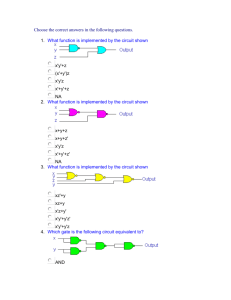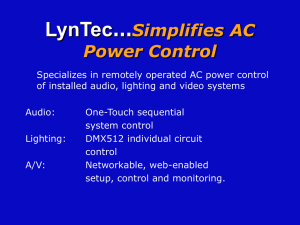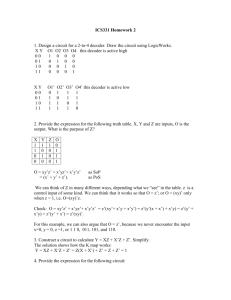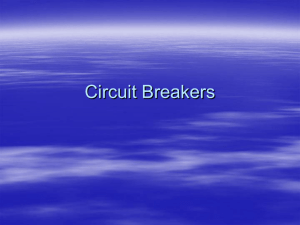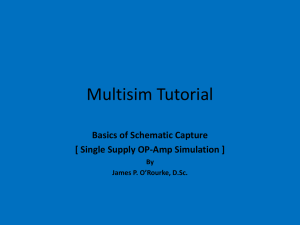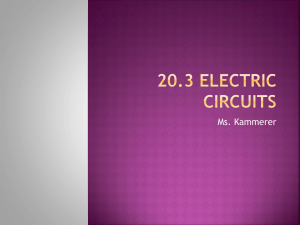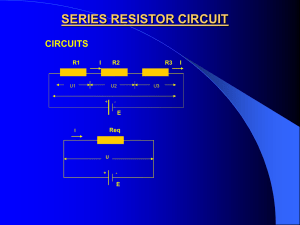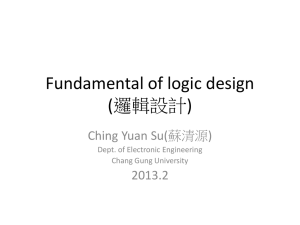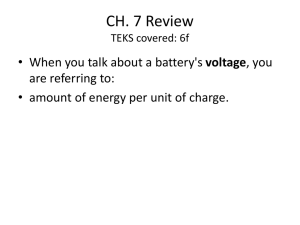Sample 3
advertisement
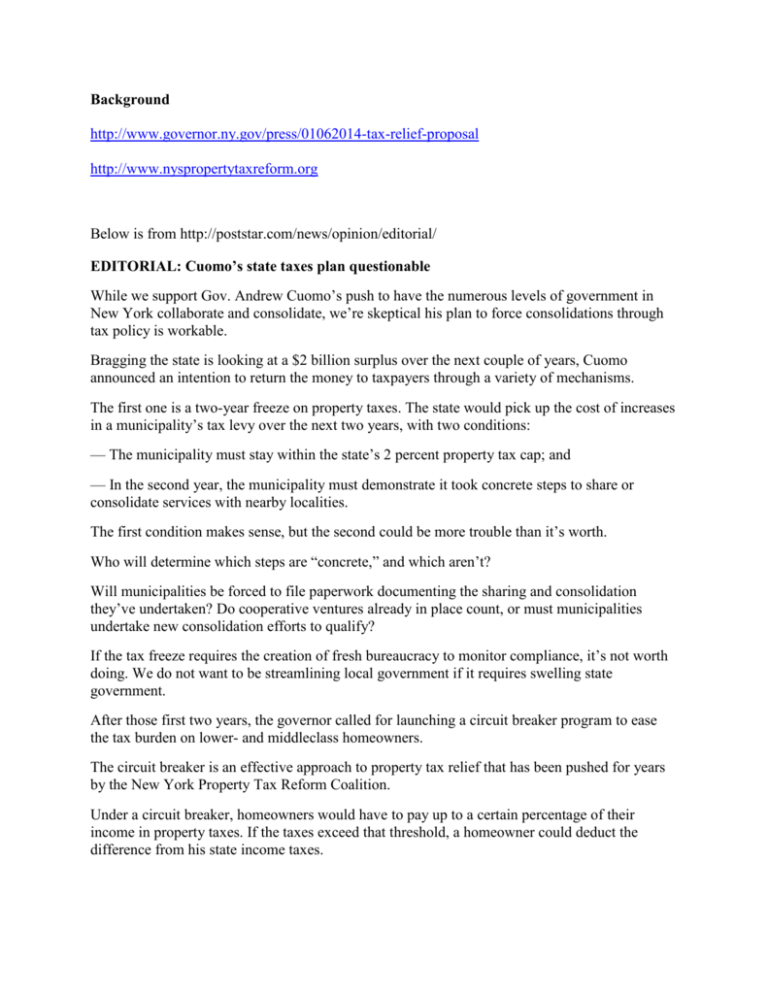
Background http://www.governor.ny.gov/press/01062014-tax-relief-proposal http://www.nyspropertytaxreform.org Below is from http://poststar.com/news/opinion/editorial/ EDITORIAL: Cuomo’s state taxes plan questionable While we support Gov. Andrew Cuomo’s push to have the numerous levels of government in New York collaborate and consolidate, we’re skeptical his plan to force consolidations through tax policy is workable. Bragging the state is looking at a $2 billion surplus over the next couple of years, Cuomo announced an intention to return the money to taxpayers through a variety of mechanisms. The first one is a two-year freeze on property taxes. The state would pick up the cost of increases in a municipality’s tax levy over the next two years, with two conditions: — The municipality must stay within the state’s 2 percent property tax cap; and — In the second year, the municipality must demonstrate it took concrete steps to share or consolidate services with nearby localities. The first condition makes sense, but the second could be more trouble than it’s worth. Who will determine which steps are “concrete,” and which aren’t? Will municipalities be forced to file paperwork documenting the sharing and consolidation they’ve undertaken? Do cooperative ventures already in place count, or must municipalities undertake new consolidation efforts to qualify? If the tax freeze requires the creation of fresh bureaucracy to monitor compliance, it’s not worth doing. We do not want to be streamlining local government if it requires swelling state government. After those first two years, the governor called for launching a circuit breaker program to ease the tax burden on lower- and middleclass homeowners. The circuit breaker is an effective approach to property tax relief that has been pushed for years by the New York Property Tax Reform Coalition. Under a circuit breaker, homeowners would have to pay up to a certain percentage of their income in property taxes. If the taxes exceed that threshold, a homeowner could deduct the difference from his state income taxes. Under a circuit breaker, people on fixed incomes would not be punished for living in nice homes they may have purchased decades earlier. But those who could afford to pay their full bill would still have to. A property tax freeze is a good use of a state surplus, and we understand the governor’s reluctance to pick up the cost of increases for municipalities that bust the tax cap. We also share the governor’s frustration with the glacial progress on consolidation statewide. But every time conditions are placed on a law, as Cuomo proposed with the tax freeze, the paperwork mountain in Albany grows taller. Cuomo should resist the temptation to tie the real possibility of a tax freeze to a vague proposal for municipal consolidations. Finally, we’d like to see the circuit breaker begin soon. It will take time to plan, so why not shorten the freeze to one year, then begin the circuit breaker? A circuit breaker restores common sense to the property tax system by tying it, like the income tax, to ability to pay. Now, people of relatively modest means who own valuable property can be impoverished by their tax bills or forced to sell their land. Longtime advocates of a circuit-breaker bill, such as John Whiteley of Ticonderoga, the legislative liaison for the Property Tax Reform Coalition, were pleased to hear Cuomo come out in favor of the strategy. But they expressed concerns about having to wait two years for the circuit breaker to begin, and about Cuomo’s apparent intention to also link a circuit breaker bill to a municipality’s adherence to the tax cap. The circuit breaker, similar to the STAR program, is aimed at individual taxpayers, not municipalities. It should not be linked to the tax cap. It would be wrong for the state to grant homeowners circuit breaker tax breaks one year, but not the next, depending on the budgets of the municipalities in which they live. Taxpayers would have no way of knowing what their property tax expenses would be one year to the next. In New York, where taxes are high, it’s fitting and proper for the state to use up its surplus on tax breaks, rather than new spending. But let’s make those tax breaks as simple, direct and fair as possible. Let’s put the circuit breaker in place as soon as we can. Addresses The Honorable Andrew M. Cuomo Governor of New York State NYS State Capitol Building Albany, NY 12224 (518) 474-8390 http://www.governor.ny.gov/contact/GovernorContactForm.php The Honorable Andrea Stewart-Cousins Local Office Albany Office 28 Wells Avenue Building 3 Yonkers, NY 10701 United States Phone: (914) 423-4031 188 State Street Room 907, Legislative Office Building Albany, NY 12247 United States Phone: (518) 455-2585 scousins@senate.state.ny.us The Honorable Thomas Abinanti Local Office Albany Office 303 South Broadway Suite 229 Tarrytown, NY 10591 914-631-1605 LOB 631 Albany, NY 12248 518-455-5753 abinantit@assembly.state.ny.us Sample Property Tax Circuit Breaker Letters Sample 1 Dear Governor Cuomo: My family needs serious property tax relief. $500-1000 won't make a dent in the burden we have in taxes. Our income is: $xx/year (fill in the xx's with your situation) Our property taxes (school, municipal, county): $xxx (fill in the xx's with your situation) We pay xx% of our income in property taxes (fill in the xx's with your situation) We've lived in our house 15 years. Our kids are in school here. Our parents are also suffering from property taxes, paying xx% (fill in the xx's with your situation)of their fixed income in PT. We've been pushing for property tax relief and school funding reform for nearly 10 years. Finally we have a governor who understands the circuit breaker. That's good news. What we don't think you believe in is us, the middle-class, hardworking homeowner who cannot continue paying 15, 20, 35% of our income in property taxes. We beg you to do better. Target your relief in order to make it meaningful for those of us who are truly overburdened. If I were paying only 3% of my income in property taxes, I wouldn't be writing you. Thank you. Sample 2 Dear Governor Cuomo: January 13, 2014 We need real property tax relief. The current proposal on the table won’t make it possible for me to stay in New York. My income is $50,000 a year. My property taxes (Village, Town, School) are approximately $20,000 a year and still rising. I have been hanging on, believing that you were getting serious about the untenable property tax burden on the middle class in New York State…. We left Manhattan because we could no longer afford the cost of living there. We moved to Rockland County, and have made a life here, while still commuting to NYC. If I don’t get meaningful relief THIS YEAR from property taxes, I will be leaving New York for good. This is not the choice I want to make. I’ve lived in my home 20 years. I am a part of this community. My work is in New York City and New Jersey. I am begging you to target your relief in order to make it meaningful for those of us who are truly over-burdened. If I were paying only 3% of my income in property taxes, I wouldn't be writing to you. Sample 3 Dear Governor Cuomo: I very much appreciate your efforts to bring meaningful property tax relief to struggling upstate tax payers. However, I fear that your current proposal will have such broad application that it will not be very meaningful. I understand that you are proposing a circuit breaker that will provide relief in the form of an income tax credit to all households paying property taxes that exceed three percent of income. I suggest that three percent is a very low threshold for such relief. Property taxes at that level cannot be regarded as excessive if the property tax is to generate significant revenues, as it must for towns, counties, and school districts – and if housing costs are thought to be reasonable if they are less than 33% of income. It is only when property taxes reach a level of eight to ten percent of income that property taxes can be said to be causing real hardship. I encourage you to limit circuit breaker relief only to households paying in excess of this level so that those who are indeed suffering real hardship will receive meaningful relief.
